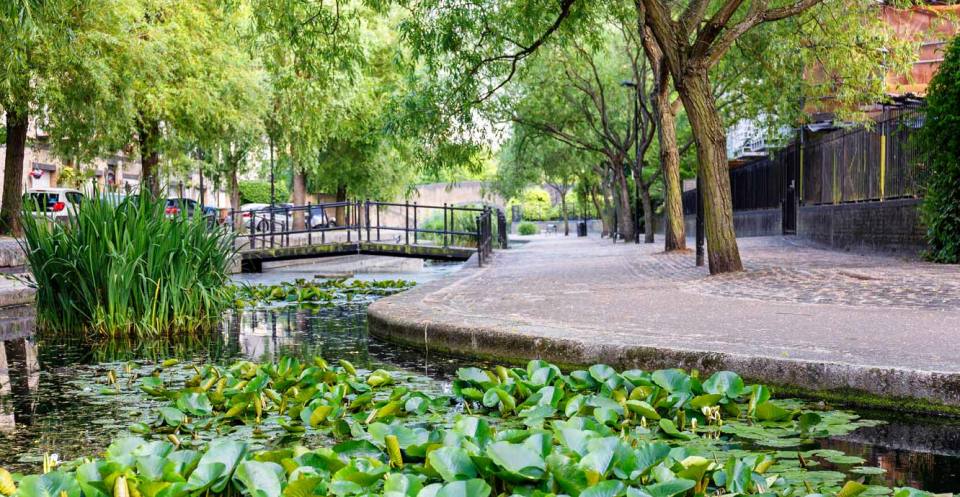Community water management for a liveable London
A research consortium including BGS will collaborate with partners and stakeholders within London to address sustainable management of the city's water within the context of required housing growth and the environment.
02/06/2018 By BGS Press
A research consortium including BGS will collaborate with partners and stakeholders within London to address sustainable management of the city’s water within the context of required housing growth and the environment.
The team, led by Imperial College London, including BGS, University College London, and the University of Oxford, has been awarded a grant as part of the £8 million Natural Environment Research Council’s Regional Impact from Science of the Environment (RISE) initiative. RISE aims to bring research organisations together with businesses, policy bodies and other actors contributing to economic development specific to their location, to deliver significant regional impact from NERC environmental science. Working in partnership with organisations across Government, business and civil society, the team aims to aims to transform collaborative water management to support the provision of lower cost and better performing water infrastructure in the context of significant housing development, whilst improving people’s local environments and their quality of life.
Why is this innovation needed?
Currently there is a shortage of housing in London, particularly affordable homes, and 50,000 new homes per year are planned for the city to 2036. The growing population of London and its planned housing require water to be supplied and flooding to be reduced as far as possible. However, the region is vulnerable to water shortages (droughts) and floods. In the spring of 2012 London was facing potentially its worst drought. By contrast, the prolonged rainfall that then fell over the summer caused localised flooding and the Thames barrier being closed twice. This swing, over half a year, from extreme shortage of water to excess highlights the major challenge London faces to manage the water environment.
This challenge is likely to worsen with climate change alongside the expected economic growth of London and associated increase in population. It also shows how droughts and flooding are two ends of a hydrological spectrum, which needs to be managed as a whole.
The CAMELLIA project
The aim of the five-year ‘Community water management for a liveable London (CAMELLIA)’ project is to bring together environmental, engineering, urban planning and socio-economic experts with governmental and planning authorities, industry, developers and citizens to co-develop solutions that will enable required housing growth in London whilst sustainably managing its water and environment. This aim will be addressed through the following five subsidiary objectives:
- To develop strategic partnerships with the various stakeholder communities involved and affected by water management decisions;
- Working with these partners to understand communal perceptions of the water system, challenges and common goals;
- In collaboration all the stakeholders, collate, develop and integrate models so that they can represent all of the interacting components of the urban water cycle, thus underpinning joint modelling of the water environment;
- To develop system analysis tools so that the information in these models can be translated into a common language facilitating informed dialogue, discussion and decisions between the various stakeholders, enabling them to reach agreed solutions to the challenging water management problems that face London;
- To demonstrate the effectiveness of this approach and the accompanying tools through a set of four case studies for a range of different challenges: urban renewal; housing development; water infrastructure regeneration; flood risk and water quality. The case studies will be up-scaled to produce London-wide models that facilitate collaborative water management and decision making across the capital.

Research team
The consortium research team will consist of the following lead scientists:
- Dr Adrian Butler, Dr Ana Mijic, Dr Alexandra Collins, Dr Athanasios Paschalis, Imperial College London
- Dr Chris Jackson, Dr Andrew Hughes, Helen Bonsor, Stephanie Bricker, Carl Watson, BGS
- Prof Sarah Bell, Dr Nicole Zimmermann, Dr Tse-Hui Teh, University College London
- Dr Simon Dadson, Dr Catharina Landström, University of Oxford
Contact
For further information please contact the BGS CAMELLIA team



